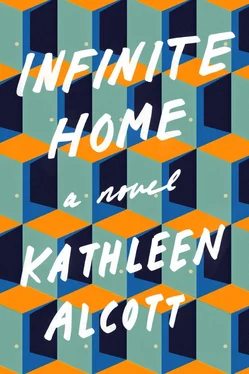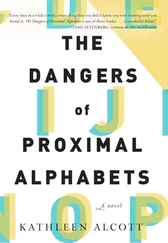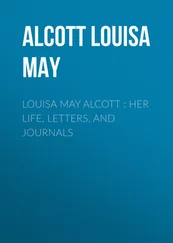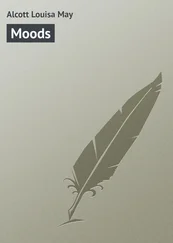THE FACT THAT THE WOMAN who wasn’t Jenny and her bumbling street colleagues hadn’t managed to steal anything made the humiliation worse. A stronger person, thought Thomas, would brush this off with a laugh, the thought of blindly following a homeless woman into a McDonald’s and babbling on while she devoured greasy food, preparing to rob him. The way they had wrenched his body left a series of bruises, and on the back of his head he felt a raised welt, but he knew it didn’t warrant the two days he had spent almost entirely in the hotel room. He had accomplished nothing, eaten little, felt that he deserved to remain hungry. On the third evening he resolved to rise early the next day, take himself to a museum, and develop some plan in the unfettered mental space a concentration of art almost always gave him.
At the Museum of Modern Art the next day, Thomas wandered through a photography exhibit focused on Depression-era small towns, thought how the dirt-faced children were all most likely dead. Later, he nearly stumbled into a sculpture that took up a whole room, a netting of tied rope that seemed to fall naturally but was in fact hardened with shellac. Signage prohibited venturing in or under it, and he felt a silent camaraderie with the others who skirted the edges as he did, looked a lingering while, perhaps thinking of parts of their life that had once seemed flexible and had irrevocably calcified. He drank expensive coffee on the rooftop garden, which seemed to gather all the heat the gray city had to offer in the bright steel of its abstract sculptures, its polished wooden benches. Nearby a new family talked loudly, their idealism pouring into a high-tech stroller, and from the street below came the sounds of someone with a bullhorn, trying to rally people for a cause that was not quite discernible. Thomas decided to try the library again, if only for the quiet.
At his pleading, Edith had finally admitted, in the benumbed voice she seemed to reserve for protected memories, that the last they’d seen of their daughter was a shot of her tangled hair in a television news segment. He thought it possible that if a news network’s team had been there, so had some local reporters, and he resolved to spend the afternoon at the microfiche machine, watching the nicotine-colored celluloid whir by like water escaping a hole. At the base of the library, a sloping lobby that looked up at six floors of smudged glass walls and people moving slowly behind them, Thomas felt a new wave of surrender to the search and followed the feeling into the elevator.
Edith had been unsure of the precise year, had finally whittled it down to two possibilities, and Thomas requested the reels of the Bay Guardian and the San Francisco Examiner . His hand on the lever, he spent hours moving the blown-up images forward, hastening the speed, quickly absorbing then rejecting headlines about the rare heat wave, the murder of a police officer, the kidnapping of a child. At the end of it all he had nothing; the final strip reached its ends and retracted back to its spool, and the screen, deprived of anything to project, glowed eerily white. Comfort had replaced purpose: the idea of Jenny had splintered and lost focus, but he felt calmed by the dated technology, the rolls stored in their time-stamped boxes and handled by librarian after librarian, the stories they held immutable, and so he requested two additional rolls from later years.
His right wrist, loose, let the blown-up reproductions float by rapidly, and he basked in the therapy of the changing ochre light, the steady hum. He settled back into his chair and imagined soothing, unlikely futures, apartments he and Adeleine might rent and furnish together, children he might have and carefully watch.
And there, unmistakably, appearing for half a second in a photograph that championed most of a page, was Jenny.

TWO MORNINGS BEFORE all the bedside lamps and televisions went dark and the refrigerators stopped humming, Adeleine answered her door in a half sleep, convinced by the dream she’d just exited that it was Thomas standing on the other side. Owen was in and past her before she’d even rubbed the yellow-green sleep from her eyes.
“I saw you in the lobby when the ambulance came,” he said, crossing her living room in a series of little stomps, gauging the strength of the floor. He pushed a curtain aside to inspect the lock on the window. “You’re the only tenant I haven’t met.” Adeleine felt exposed in the yellow lace nightgown she’d answered the door in, looked down and saw the bow at the neck and the gauzy skirt as signs of weakness. She felt the slow creep of a man noticing her, and pulled a throw blanket from the sofa to wrap around her shoulders, but this only seemed to thicken his attention.
“You live alone?” he asked. He already knew the answer, was already busy cataloging her insane collection of objects, turning in slow circles with his fists in his khaki pockets.
She nodded.
“What do you do when something breaks?”
Her anxiety kept her from answering at all, and he grinned.
“I see. You’re in it for the historic charm! The claw-foot bath! The fire escape! The easiest attitude to take in these old places, huh?”
“Listen,” he said, announcing his transition into business with authority. “I need someone to pop in on Edith while she’s recovering from her little hospital adventure. I’m working on getting her placed somewhere permanently, of course, but in the interim I can’t be here all the time playing nurse. I just need you to check once a day that she’s eaten and bathed somewhat recently. If you’ll help, maybe we can work something out. I won’t require that you vacate, as I will with the rest of the tenants.”
“I, well—”
“Great,” Owen said. “You will. Fabulous.” He chucked her chin with his index finger and winked, was out the door. Adeleine glanced at her watch. The whole exchange had lasted less than three minutes, but the safety she usually found in appraising her things — the stacks of books she’d annotated, the gauzy scarf draped over a lamp — was gone, had left with him.

WITH HELENA’S CURTAINS TIED UP to admit the light from the street, the apartment felt larger, like a space human clutter had not yet succeeded in filling.
Edward paced, on hold with Con Edison, while Claudia found and lit candles, then stuffed them in four recently drained wine bottles he had left by the door. Paulie couldn’t understand the fuss, was thrilled to see their faces and the corners of the apartment shadowed and defined so differently. He had immediately suggested to Claudia that they all think up their most haunted stories, but she had told him only that ghosts were pains in the ass, unreliable guests who didn’t clean up when they came to dinner. Perched on the couch, crossing and uncrossing her legs, she looked over at Edward and swore under her breath. Paulie felt awfully bored and lay down on the carpet, where he demonstrated for his sister all the stretches he knew of, starting with his legs all the way up and straight and his hands clutching his toes. Edward had moved to the bedroom, where he had finally gotten someone on the line, and they could hear the pitch of his voice move up and down in protest and negotiation. After fifteen minutes, he was back.
“Fuck,” Claudia said, when she looked at his face.
“They said we can’t do anything without her, since she’s the account holder.”
Читать дальше













